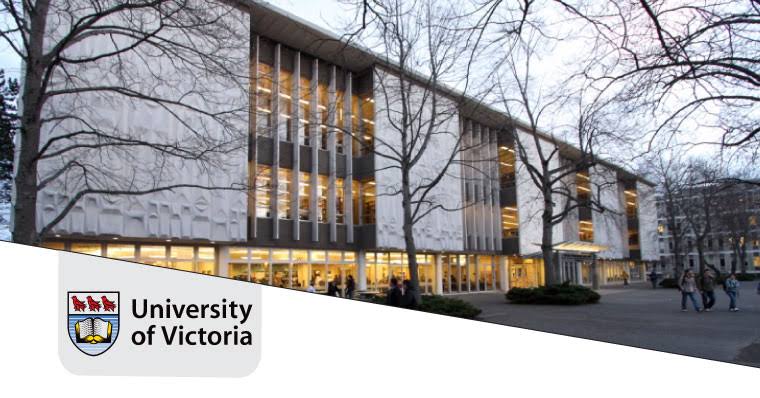Immigrating to Canada through the Start-Up Visa Program gives entrepreneurs from around the world a chance to start new businesses in one of the most stable and diverse countries. As of July 2025, the Canadian Start-Up Visa (SUV) attracts founders and business people, especially in technology, green energy, artificial intelligence, and other fast-growing areas. The program offers a path to permanent residency and access to top support systems, North American markets, and a friendly environment for innovation. However, applying requires knowing the eligibility rules, preparing well, and aligning with Canada’s innovation goals.
Understand the Purpose of the Start-Up Visa Program
The Start-Up Visa Program was created to strengthen Canada’s economy by attracting entrepreneurs with the potential to build scalable businesses that can compete on a global level. Unlike traditional business immigration pathways that focus on past financial success, this program emphasizes innovation, adaptability, and collaboration with Canadian institutions.
As of July 2025, the SUV has gained renewed interest due to Canada’s increasing investment in entrepreneurship and technology hubs. With government-supported accelerators, angel investor networks, and designated venture capital groups expanding their roles, the SUV has become an even more appealing route for visionaries from across the globe.
Canada’s aim is to bring in founders who not only create jobs but also generate intellectual property, exports, and long-term economic value. Applicants must demonstrate that their business idea is viable, original, and capable of competing in the Canadian market and beyond.
Meet the Eligibility Requirements
To qualify for the Canadian Start-Up Visa, applicants must meet four core eligibility requirements. First, they must have a qualifying business—one that is innovative and scalable. Second, they need to secure a commitment from a designated Canadian organization such as a venture capital fund, angel investor group, or business incubator.
Third, the applicant must demonstrate proficiency in English or French through standardized testing. A minimum of Canadian Language Benchmark (CLB) Level 5 is required in speaking, reading, listening, and writing.
Finally, they must prove they have enough settlement funds to support themselves and their dependents. These funds are not provided by the Canadian government and are mandatory even if the applicant has secured investment backing.
As of 2025, the required funds are based on family size and regularly updated by Immigration, Refugees and Citizenship Canada (IRCC). Applicants must provide bank statements or financial documents as evidence of this requirement being fulfilled.
Develop a Viable and Scalable Business Idea
The success of your application largely depends on the strength and scalability of your business idea. This means the concept should not only be innovative but also capable of growth within Canada’s business environment. Your product or service must address a real problem, offer a unique solution, and have market potential.
Entrepreneurs are expected to create a detailed business plan outlining their model, projected revenues, competition, and growth strategy. In 2025, with increasing emphasis on digital transformation and green technologies, start-ups that integrate sustainability, automation, or AI tend to gain more traction with investors and incubators.
It’s important that the business is incorporated in Canada, with a significant portion of the operations planned to take place within the country. Applicants must also retain at least 10% of the voting rights in the company, and all designated entities combined and the applicants must jointly hold over 50% of voting rights at the time of application.
Obtain a Letter of Support from a Designated Organization
Perhaps the most critical component of the application process is securing a Letter of Support from a designated organization. This shows that your business has been endorsed by a recognized Canadian investor or incubator, verifying its potential and seriousness.
Applicants must pitch their business idea to one or more of these designated groups. Each organization has its own intake process and criteria, which may include submitting a pitch deck, undergoing interviews, or participating in business mentorship programs.
In July 2025, many of these organizations now require in-depth market research and a working prototype before considering your application. Some accelerators even conduct due diligence checks and request a trial residency in Canada to further evaluate the start-up’s potential.
Once your idea is accepted, the organization will issue a Letter of Support and notify IRCC directly. This letter is essential for the official Start-Up Visa application and proves your business has backing in Canada’s innovation ecosystem.
Submit Your Start-Up Visa Application
With your Letter of Support in hand, the next step is to submit your application to IRCC. This includes filling out immigration forms, paying processing fees, and providing the required documentation such as proof of language proficiency, financial means, business ownership structure, and police certificates.
As of July 2025, the application fee for the Start-Up Visa is CAD $2,140 for the principal applicant, and additional fees apply for dependents. Biometrics are also mandatory for most applicants, and these can be done at designated visa application centers globally.
The review process can take between 12 to 16 months. During this time, IRCC assesses the completeness of the application, verifies the authenticity of the supporting documents, and ensures compliance with eligibility criteria. Incomplete or inconsistent applications may be returned or denied, so attention to detail is vital.
Consider Applying for a Work Permit While Waiting
Since processing can take over a year, eligible applicants often apply for a temporary work permit while their permanent residency application is being reviewed. This permit allows them to begin building their business in Canada in collaboration with the designated organization.
In 2025, a growing number of SUV applicants take advantage of this option, especially when business development, hiring, or client meetings need to begin immediately. This permit is tied to the start-up’s operations and allows the entrepreneur to enter and operate in Canada on a short-term basis.
Applying for the work permit involves a separate process but is streamlined for those with a valid Letter of Support. It allows the founder to immerse themselves in the Canadian market and begin laying the foundation for long-term success.
Prepare for Life and Business in Canada
Once approved, moving to Canada as a permanent resident under the SUV requires significant preparation. This includes understanding Canadian business laws, taxation, labor regulations, and market conditions. Entrepreneurs should also explore government grants, local business development centers, and immigration settlement programs.
By mid-2025, Canada continues to offer a wealth of support to new immigrants, especially in provinces like Ontario, British Columbia, and Nova Scotia, which have strong start-up ecosystems. Many cities also host immigrant entrepreneur meetups and events, making integration smoother for foreign business owners.
In addition to professional readiness, personal settlement—finding housing, enrolling children in school, and securing healthcare—is essential. Canada’s multicultural environment makes it easier for families from various backgrounds to settle and feel welcomed.
Conclusion: A Strategic Pathway to Business and Residency
The Canadian Start-Up Visa Program remains one of the most forward-thinking immigration pathways available. It rewards innovation, encourages entrepreneurship, and supports long-term success through a structured and supportive system. As of July 2025, it continues to be a valuable opportunity for visionary individuals who are ready to contribute to Canada’s dynamic and inclusive economy.
By understanding the steps—eligibility, business planning, securing a Letter of Support, and preparing for both application and settlement—you can navigate this process with confidence. With the right approach and commitment, your dream of building a future in Canada through innovation is well within reach.



